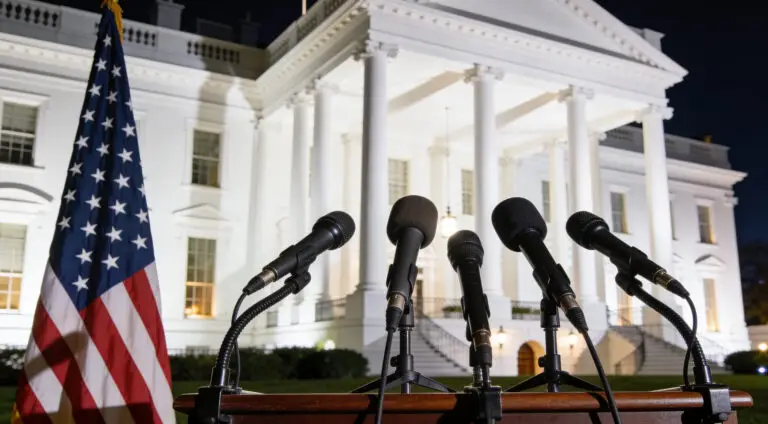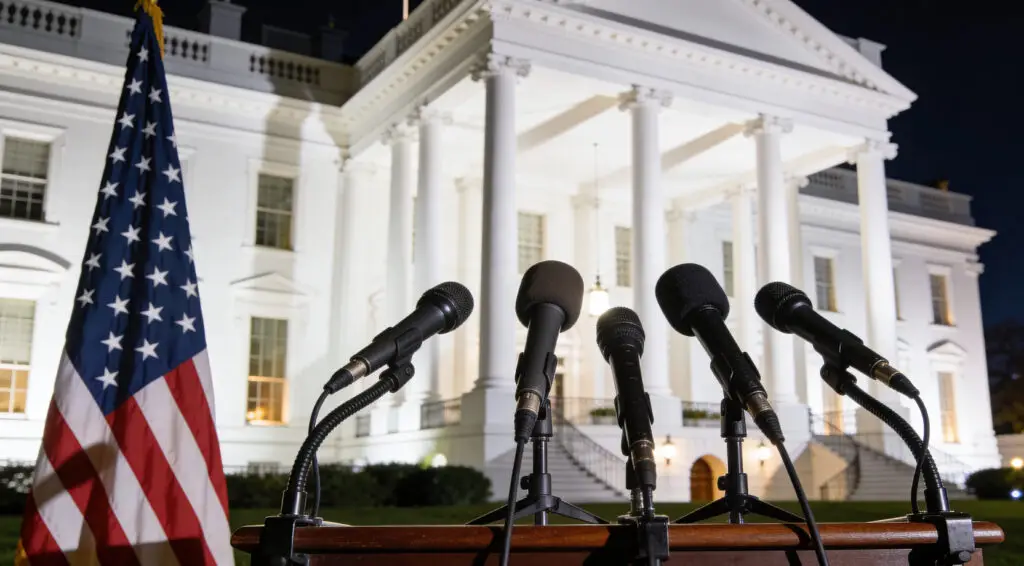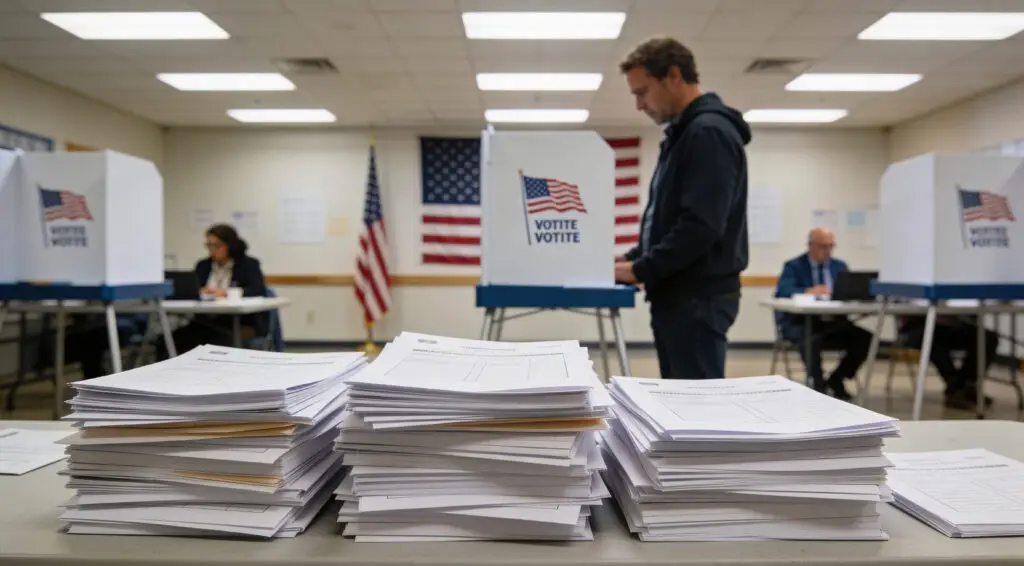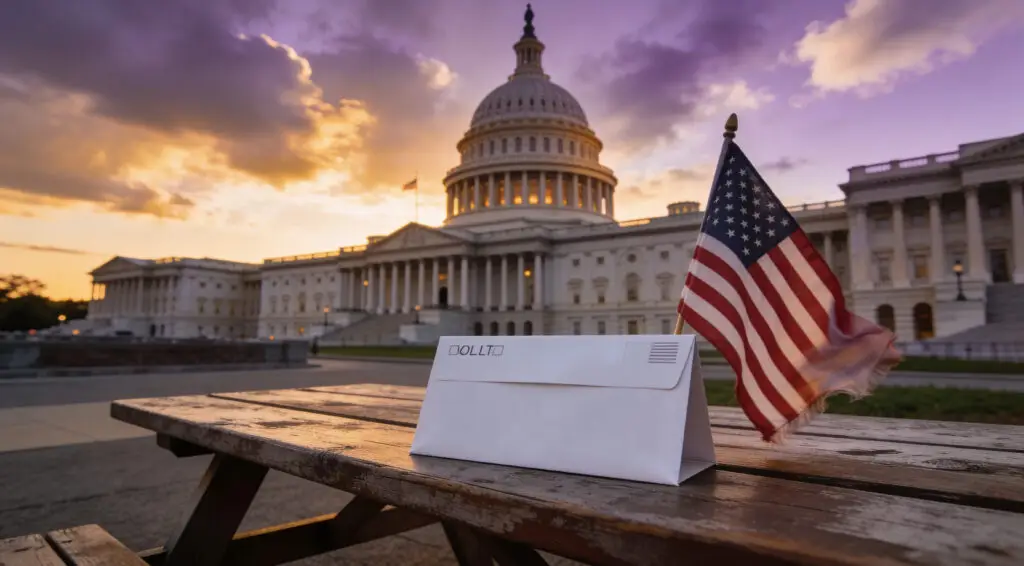[Vienna, 29.04.2025]— Cryptocurrencies continue to gain traction under the administration of Donald Trump; the White House is crypto-friendly. Private cryptos and stablecoins gained traction after the Trump administration relaxed regulations, along with the January executive order that scrapped plans for a federally controlled “digital dollar CBDC. DAOs, or Decentralized Autonomous Organizations, have been marketed as a step towards true democratization of finance, monetizing fairness and transparency. Yet, new studies indicate that, far from the ideal of democratic governance, the decision-making processes in a lot of DAOs operate in a non-democratic fashion.
Power Dynamics in DAOs
DAOs are an outlier in comparison to traditional business enterprises such as those with CEOs and CFOs because they enable users to vote on policies situated to where they lay within the organizational structure. In a DAO, every single member of a community can exercise their right to vote on major policies such as the strategic allocation of resources, fee structures, and software updates. Voting within a DAO is done by clicking the appropriate button on their governance tokens, which are used as a digital proof of ownership granting a share in the company, providing its holder the right to vote. The primary question that follows is who governs these governance tokens and the authority that comes with them. CSH researcher Stefan Kitzler has commented on this issue: “In principle, every user can take part in the governance. The question is who these users actually are, considering the fact that there are only pseudonymous addresses.”
Study Findings on Concentration
As Kitzler and colleagues explored the participation of active users in the governance process, it was revealed that one of the so-called governing DAO principles was built out of predefined organizational silos. In their publication of Financial Cryptography and Data Security, they wrote that in paradigms where transparency and public availability of critical governance components are claimed, there is a clash between mythology and reality as solution concentration takes place.
Kitzler noted that, “In practice, governance tokens tend to be very much concentrated in the hands of early adopters or some other form of investors.” A research group worked with a massive dataset that consists of 35,124 proposals from 872 DAOs, which had 986,557 votes in total. It was found that in 7.54% of all DAOs analyzed, contributors, in this case, were defined as developers, admins, or project owners, and were, in fact, over majority voters. This degree of token distribution granularity gave control to these contributors over the decisions in those DAOs. Also, the research determined that in about 20% of the analyzed DAOs, the contributors single-handedly passed at least one proposal without the need for other token holders’ backing.
Case Focus: Tornado Cash
The analysis of the issue examines Tornado Cash in a real-life crypto context. The U.S. government sanctioned the application structured as a DAO in 2022. It was alleged that the platform facilitated the laundering of money tied to North Korean hackers’ activities. Following this, two of the project’s developers were arrested. While the objective of DAOs is to decentralize control among a community of token holders, the Tornado Cash episode stirred public debate over whether some form of decision-making or control still remained with a centralized inner circle. The case analyzed sheds light on the overweight power that, as the empirical study showed, is exercised in various forms and argues why such data should be included when discussing these types of cases.
Anonymity and Influence
The challenge of determining the actual proprietors of governance tokens can be attributed to the anonymity that blockchain transactions grant. This level of anonymity value can make governance within a DAO more opaque than the blockchain ledger beneath it, thus enabling an opportunity for foul play. The researchers noted a striking pattern wherein governance tokens seemed to change hands just prior to critical votes. This phenomenon may indicate collusive conduct from the participants or worse, manipulation that distorts the decision-making processes of the DAO. Kitzler commented on observed dynamics within DAOs, saying, “In our study, we found signs of ‘inner circles’ forming in many DAOs,” elaborating, “as the contributors, as it turns out, are positioned in the middle of the DAO governance network and tend to wield disproportionate power.” Bernhard Haslhofer, who leads the Digital Currency Ecosystems research group at CSH, added his perspective on the findings: “Even in large DAOs managing millions of dollars, we have sometimes seen signs of unilateral control. That was surprising.”
Implications for Regulation
The timing of the release of the study’s results is extremely important, as it comes in consideration for the renewed interest in cryptocurrencies and subsequent discussion of regulations across the world. These findings add evidence to support the ongoing debates.
Haslhofer also commented that, “Empirically, there is a reality that needs to be navigated and shaped so that future regulations are poised to allow DAOs to realize what they are meant to be,” which further explains why this study was conducted. The core of this study suggests that governance at lower levels is quite centralized in power in most of the DAOs in existence today, which, in the opinion of the author, is likely going to require some form of intervention by regulators from strategic positions of digital assets. According to the findings, these models struggle to meet the expectations surrounding decentralized autonomous organizations. To achieve the intended design—one that democratizes and standardizes financial activity—regulations and boundaries that are nurtured with an understanding of these principles need to be created.















